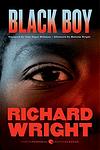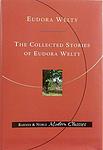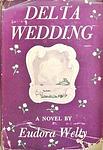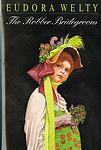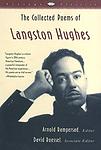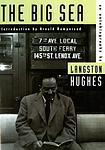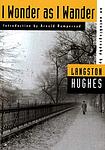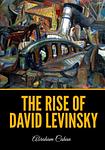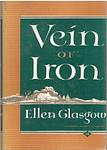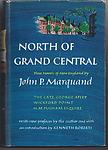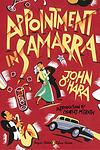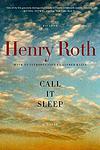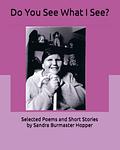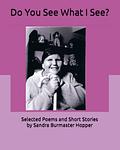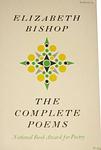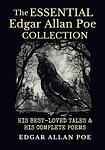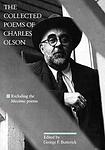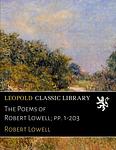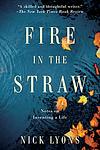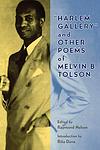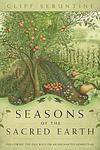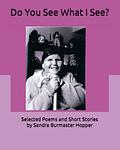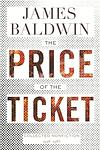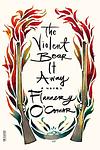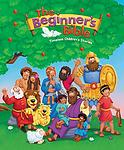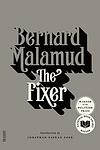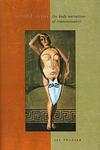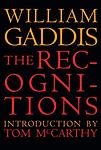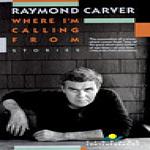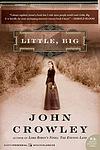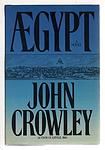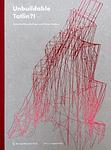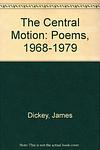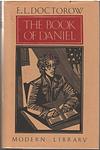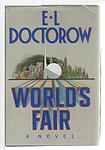Harold Bloom's The Western Canon
This is one of the 305 lists we use to generate our main The Greatest Books list.
-
Black Boy by Richard Wright
"Black Boy" is an autobiographical account of a young African-American boy growing up in the South during the early 20th century. The book explores his experiences with extreme poverty, racism, and his struggle to find his place in a society that marginalizes and devalues him. The protagonist's desire for self-expression and understanding leads him to a love of literature and writing, providing him with a means to challenge and critique the oppressive social structures around him.
The 691st Greatest Book of All Time -
The Collected Stories of Eudora Welty by Eudora Welty
This collection of short stories provides an insightful look into the human condition through the lens of Southern American life. The narratives, rich in detail and character development, explore a wide range of themes such as love, loss, race, poverty, and the complexities of human relationships. The stories are deeply rooted in the setting of the Southern United States, bringing to life the unique culture, customs, and dialect of the region. The author's masterful storytelling and evocative prose make each story a vivid and memorable exploration of human nature.
The 714th Greatest Book of All Time -
Delta Wedding by Eudora Welty
Set in the Mississippi Delta in the 1920s, the novel revolves around the Fairchild family as they prepare for the wedding of their daughter Dabney. Through the eyes of a young cousin, Laura McRaven, who is visiting the Fairchilds' sprawling plantation, the narrative delves into the complex dynamics of Southern family life, revealing the intricate relationships, traditions, and social expectations that bind the family members. The story unfolds in a richly detailed and atmospheric setting, capturing the rhythms of Southern speech and the lush, oppressive heat of the Delta, while exploring themes of belonging, change, and the powerful ties of family and community.
The 1834th Greatest Book of All Time -
The Robber Bridegroom by Eudora Welty
Set in the American South, the novel is a dark fairytale that revolves around the story of a charming and mysterious outlaw known as the Robber Bridegroom. He leads a double life, courting a virtuous innkeeper's daughter while leading a band of thieves in the wilderness. As the wedding day approaches, the bride-to-be begins to uncover the sinister truth about her fiancé's nefarious activities. Blending Southern folklore with the Brothers Grimm, the narrative unfolds with a mix of humor, romance, and macabre twists, ultimately exploring themes of identity, deception, and the nature of storytelling itself.
The 7168th Greatest Book of All Time -
The Ponder Heart by Eudora Welty
The novel is a comedic Southern Gothic tale narrated by a charming and garrulous woman who recounts the eccentricities of her wealthy family, particularly focusing on her generous but impulsive Uncle Daniel. The story unfolds in a small Mississippi town, where Uncle Daniel's habit of giving away practically everything he owns, including land and possessions, leads to a series of humorous and dramatic events. His actions culminate in a scandalous trial after he marries an opportunistic teenager who meets an untimely demise, leaving the town abuzz with gossip and speculation about Daniel's role in her death. The narrative weaves themes of innocence, generosity, and the complexities of human relationships, all set against the backdrop of the American South.
The 7168th Greatest Book of All Time -
The Collected Poems of Langston Hughes by Langston Hughes
This anthology is a comprehensive collection of the works of a renowned African American poet, spanning five decades of his prolific career. The collection includes over 800 poems that touch on themes of love, life, race, and social issues, reflecting the poet's experiences and observations in the Harlem Renaissance period. The poet's distinct style combines jazz rhythms, colloquial language, and vivid imagery, making his work a significant contribution to American literature.
The 4062nd Greatest Book of All Time -
The Big Sea by Langston Hughes
"The Big Sea" is an autobiography that explores the life of a significant figure in the Harlem Renaissance. The narrative follows his early life in the Midwest, his travels around the world as a seaman, and his experiences in New York during the 1920s, where he was a central figure in the Harlem Renaissance. Throughout the book, the author offers his observations on racism, class, and the creative process, providing a vivid and insightful portrait of a complex era in American history.
The 3462nd Greatest Book of All Time -
I Wonder As I Wander by Langston Hughes
In this autobiographical work, the author takes readers on a journey through his varied experiences as a young African American man during the early 20th century. Spanning continents and cultures, he recounts his travels from the United States to the Soviet Union, Asia, and Europe, sharing his observations on race, politics, and the human condition. His narrative weaves together personal anecdotes with broader social commentary, offering insights into the life of a creative mind seeking understanding and connection in a complex world. Through his wanderings, the author explores not only the diverse landscapes and societies he encounters but also delves into the depths of his own identity and the universal quest for artistic expression and freedom.
The 7168th Greatest Book of All Time -
The Shores Of Light by Edmund Wilson
"The Shores of Light" is a comprehensive anthology of literary criticism and social commentary, spanning the first three decades of the 20th century. The collection showcases the author's incisive and often acerbic observations on a wide array of subjects, ranging from the evolution of American literature and culture to the idiosyncrasies of prominent literary figures of the era. Through a series of essays, reviews, and personal reflections, the work not only offers a window into the intellectual and cultural milieu of the time but also highlights the author's role as a keen critic and an influential voice in the landscape of American letters.
The 7168th Greatest Book of All Time -
Patriotic Gore by Edmund Wilson
"Patriotic Gore" is a comprehensive study of American literature during and after the Civil War. The author examines the works of writers such as Abraham Lincoln, Harriet Beecher Stowe, and Oliver Wendell Holmes, among others, to present a nuanced understanding of how the war influenced American literature and culture. The book offers a unique perspective on the Civil War, focusing on the intellectual and cultural responses to the conflict rather than the military and political aspects.
The 1697th Greatest Book of All Time -
Counter Statement by Kenneth Burke
The book in question is a seminal work in the field of rhetorical analysis and literary criticism, which challenges traditional views of literary expression by proposing that literature should be understood as a form of symbolic action. The author argues that literary and poetic language is fundamentally strategic, serving to persuade and shape attitudes in readers. Through a series of essays, the text delves into the techniques and motives behind rhetorical structures, examining how writers use stylistic devices, narrative strategies, and symbolic acts to invoke responses. The work emphasizes the importance of considering the social and psychological dimensions of rhetoric, ultimately advocating for a more nuanced and dynamic approach to understanding literary texts as active participants in communication and cultural discourse.
The 7168th Greatest Book of All Time -
A Rhetoric Of Motives by Kenneth Burke
This book is a seminal work in the field of communication studies and literary criticism that explores the role of rhetoric in shaping human motives and social relations. The author delves into the symbolic nature of human interactions, examining how language and symbols are used to create identification among people, which in turn can lead to persuasion and the formation of social hierarchies. The text argues that rhetoric is not merely a tool for effective speaking or writing, but a fundamental aspect of human behavior that is intricately linked to the ways in which individuals strive for power, cooperation, and social cohesion. Through a rich analysis of various forms of communication, from political discourse to the arts, the book offers a profound understanding of how rhetorical processes influence our actions and the world around us.
The 7168th Greatest Book of All Time -
Up in the Old Hotel by Joseph Mitchell
"Up in the Old Hotel" is a collection of essays that paints a vivid picture of New York City from the 1930s to the 1960s. The stories introduce a rich tapestry of characters, from street preachers and gypsies to oystermen and bar regulars, each with their own unique history and perspective. The book captures the essence of the city and its inhabitants in a way that is both deeply personal and universally relatable, providing an intimate look at a bygone era.
The 1887th Greatest Book of All Time -
The Rise Of David Levinsky by Abraham Cahan
The book is a classic rags-to-riches tale set in the late 19th and early 20th centuries, chronicling the life of a young Jewish immigrant who arrives in America with nothing and eventually becomes a wealthy garment industry mogul in New York City. The protagonist's journey is marked by his struggle with personal identity and assimilation, as he grapples with the tension between his traditional Jewish upbringing and the allure of success and acceptance in American society. The narrative delves into themes of ambition, the American Dream, and the immigrant experience, offering a poignant exploration of the costs of upward mobility and the complex interplay between cultural heritage and modernity.
The 7168th Greatest Book of All Time -
Three Short Novels by Kay Boyle
"Three Short Novels" is a collection that showcases the author's literary prowess through a trio of compelling narratives, each distinct in its exploration of human experiences and emotions. The novellas delve into the complexities of relationships, the nuances of social and political dynamics, and the personal struggles of the characters, all set against the backdrop of significant historical moments. The author's rich prose and insightful observations offer a deep reflection on the nature of identity, the impact of external events on individual lives, and the enduring quest for meaning and connection in a changing world.
The 7168th Greatest Book of All Time -
Barren Ground by Ellen Glasgow
The novel explores the life of a resilient and independent woman who, after suffering heartbreak and betrayal in her youth, returns to her native Virginia to manage her family's farm. As she works tirelessly to transform the once-barren land into a prosperous enterprise, she also seeks to cultivate her own emotional independence. Despite societal expectations and personal disappointments, she remains determined to live life on her own terms, finding strength in her connection to the land and her rejection of traditional feminine roles. The story is a poignant examination of the struggle for self-fulfillment and the complexities of human relationships against the backdrop of the changing South.
The 5277th Greatest Book of All Time -
Vein Of Iron by Ellen Glasgow
The novel is a poignant exploration of the resilience and endurance of the human spirit, set against the backdrop of the rural South in the early 20th century. It follows the life of Ada Fincastle, a woman of strong will and moral fortitude, as she navigates personal tragedies, economic hardships, and the evolving landscape of her world. Through Ada's journey, the narrative delves into themes of family loyalty, mental health, and the search for stability in a rapidly changing society. The protagonist's unwavering strength, akin to a vein of iron, serves as the central metaphor for the novel's examination of the indomitable nature of character in the face of life's relentless challenges.
The 7168th Greatest Book of All Time -
H. M. Pulham, Esquire by John P. Marquand
The novel is a reflective account of the life of Harry Pulham, a middle-aged, conventional Bostonian who is prompted to examine his past and the choices he has made during the process of writing a Harvard class reunion biography. As he delves into his memories, he confronts his youthful ambitions, his experiences in World War I, and his complex relationships, particularly with a vivacious woman who challenged the conservative values of his upbringing. Through this introspection, Harry grapples with the realization that he has conformed to societal expectations at the expense of his own happiness, leading to a poignant exploration of the conflict between individual desires and societal pressures in early 20th-century America.
The 7168th Greatest Book of All Time -
Collected Stories by John O'Hara
"Collected Stories" is an anthology that showcases the breadth and depth of a 20th-century American writer's short fiction. The collection brings together a wide array of narratives that delve into the lives of various characters from different social strata, capturing the nuances of their personal relationships, ambitions, and the societal norms that shape their actions. The author's keen observation of detail and dialogue reflects the complexities of American life, particularly in the context of the early to mid-1900s, offering readers a rich tapestry of human experience ranging from the mundane to the profound.
The 8348th Greatest Book of All Time -
Appointment in Samarra by John O'Hara
This novel explores the self-destruction of the main character, a successful and respected car dealer, over a three-day span during the Christmas season in 1930. After a series of impulsive and reckless actions, including alienating his friends and family, having an affair, and getting involved with organized crime, the protagonist spirals out of control, leading to his tragic demise. The book offers a critique of the vapid and hypocritical aspects of high society in a small Pennsylvania town during the Great Depression.
The 1601st Greatest Book of All Time -
Call It Sleep by Henry Roth
This novel tells the story of a young Jewish boy, David Schearl, who immigrates to New York City with his mother in the early 20th century. The narrative explores David's struggles to understand his harsh father, his experiences with anti-Semitism and poverty in the Lower East Side, and his journey of self-discovery through his vivid imagination. The boy's fears and dreams are depicted through a stream-of-consciousness narrative technique, providing a powerful exploration of the immigrant experience and the harsh realities of the American dream.
The 458th Greatest Book of All Time -
Three Plays by Thornton Wilder
This collection brings together three significant works by a renowned American playwright, each exploring the universal themes of life, death, and human connection in distinct settings. The first play is a metatheatrical commentary on the everyday lives of residents in a small town, revealing the profound in the mundane. The second play takes place in a purgatorial anteroom where deceased characters reflect on their past experiences and missed opportunities. The final play is a farcical satire set in ancient times, where characters confront issues of fate and free will. Together, these plays challenge audiences to consider the deeper meanings behind their existence and the shared experiences that define humanity.
The 7168th Greatest Book of All Time -
All the King's Men by Robert Penn Warren
"All the King's Men" is a political drama that revolves around the rise and fall of a Southern governor, loosely based on Louisiana's Huey Long. The story is narrated by a journalist who becomes the governor's right-hand man, offering an inside perspective on the political machinations, corruption, and personal tragedies that accompany the governor's climb to power. The novel explores themes of power, corruption, and the moral consequences of political ambition.
The 166th Greatest Book of All Time -
World Enough And Time by Robert Penn Warren
"World Enough and Time" is a historical novel set in early 19th-century Kentucky, exploring themes of passion, guilt, and the complexities of the human condition. The narrative centers around a young man from a prominent family who becomes entangled in a torrid love affair that leads to a notorious murder. As the protagonist grapples with the consequences of his actions, the story delves into the psychological and moral struggles that arise from his choices, set against the backdrop of a society on the cusp of modernity, where the frontier's lawlessness clashes with emerging civil order. The novel examines the intricate web of personal and historical forces that shape the characters' destinies, offering a rich and nuanced portrayal of the American South during a transformative period.
The 7168th Greatest Book of All Time -
Selected Poems by Robert Penn Warren
This collection is an anthology of lyrical works by a distinguished American poet, offering a curated selection from his extensive oeuvre. The poems span several decades of the 20th century, reflecting on themes of time, memory, nature, and the human condition. The poet's mastery of language and form is evident as he weaves together personal and historical narratives, exploring the complexities of identity and the South's legacy. Rich in imagery and profound in philosophical inquiry, the anthology showcases the poet's evolving perspective and his enduring impact on American literature.
The 7168th Greatest Book of All Time -
Selected Poems by Delmore Schwartz
"Selected Poems" is a compilation of lyrical and introspective poetry that delves into the complexities of human experience, capturing the nuances of everyday life, love, loss, and the passage of time. The poet's work is known for its intellectual depth, emotional resonance, and the interplay between reality and dreamlike states. Through a blend of modernist and traditional techniques, the collection reflects on personal identity, the search for meaning, and the often disquieting aspects of the human condition, all while showcasing the poet's sharp wit and mastery of language.
The 7168th Greatest Book of All Time -
Collected Poems by Weldon Kees
"Collected Poems" is an anthology that brings together the evocative and profound body of work of a 20th-century American poet known for his sharp imagery, existential themes, and darkly introspective tone. The collection spans the poet's career, showcasing his adeptness at capturing the malaise and complexity of post-war America. His poetry often reflects a sense of personal and societal disillusionment, exploring themes of isolation, identity, and the search for meaning in a rapidly changing world. The poet's work is noted for its technical skill, intellectual depth, and the haunting presence of an alter ego that serves as a recurring motif throughout his oeuvre.
The 7168th Greatest Book of All Time -
Complete Poems by Elizabeth Bishop
"Complete Poems" is a comprehensive collection of works by a renowned poet, showcasing her mastery of language and imagery. The book features a wide range of themes including travel, nature, loss, and human connection. The poet's keen eye for detail, unique perspectives, and her ability to infuse ordinary moments with profound insights, make this collection a compelling exploration of the human experience.
The 521st Greatest Book of All Time -
Collected Poems by John Berryman
This anthology is a comprehensive collection of lyrical works by a prominent 20th-century American poet known for his innovative style and emotional depth. The volume spans his entire career, showcasing a range of subjects from personal struggles and existential questions to historical figures and literary criticism. The poet's distinctive voice is characterized by its intense, confessional tone and the use of an alter ego, which allows for a complex interplay between reality and imagination. His mastery of form, from traditional sonnets to his own creation of an idiosyncratic stanza structure, demonstrates a profound engagement with the craft of poetry, making this compilation a testament to his lasting impact on American literature.
The 8595th Greatest Book of All Time -
The Sheltering Sky by Paul Bowles
"The Sheltering Sky" is a novel about an American couple, Port and Kit Moresby, who travel to the North African desert accompanied by their friend Tunner. The journey, initially an attempt to cure their marital woes, quickly descends into a harrowing journey of self-discovery and exploration of the human condition. As they move further into the desert, the harsh environment and their isolation from the outside world push them to their psychological limits, leading to devastating consequences.
The 495th Greatest Book of All Time -
Complete Poems by Randall Jarrell
This comprehensive collection assembles the lifetime work of a significant American poet known for his sharp wit, profound insight, and masterful command of language. The anthology spans various themes, from the deeply personal to the broadly social, and is particularly noted for its poignant reflections on war and the human condition. The poet's role as a literary critic and his experiences as a World War II Air Force navigator deeply inform his verse, which is characterized by its narrative style, moral passion, and a blend of realism and allegory. The book stands as a testament to the poet's influential voice in 20th-century American poetry, showcasing his ability to blend the everyday with the profound in a body of work that continues to resonate with readers.
The 7168th Greatest Book of All Time -
The Maximus Poems by Charles Olson
"The Maximus Poems" is an expansive collection of modernist poetry that delves into the rich tapestry of American history, culture, and identity through the lens of the titular character, Maximus. Drawing from the poet's own experiences in the fishing town of Gloucester, Massachusetts, the work weaves together myth, personal narrative, and a deep sense of place to explore broader themes of existence, time, and the individual's role within the continuum of society and the natural world. The poems challenge traditional forms and structures, reflecting the poet's belief in the importance of the physicality of language and its capacity to convey complex, layered meanings.
The 7168th Greatest Book of All Time -
Poems Of Charles Olso by Charles Olson
The collection presents a comprehensive body of work by a significant 20th-century poet, known for his role in the postmodern literary movement and his influence on the Black Mountain poets. The poems are characterized by their use of projective verse, a form that emphasizes the breath and the physical act of speaking in the structure of poetry. The poet's work often reflects on history, place, and personal experience, weaving these elements into a tapestry that challenges traditional poetic boundaries and invites readers to engage with language in new and dynamic ways. His experimental approach to syntax and form, along with a deep connection to the human experience and the natural world, makes this compilation a profound exploration of the poet's innovative and intellectual contributions to American poetry.
The 7168th Greatest Book of All Time -
Poems Of Robert Hayden by Robert Hayden
This collection brings together the poignant works of a distinguished American poet who delves into the African American experience and wrestles with themes of identity, history, and humanity. The poems reflect a mastery of language and a deep engagement with the cultural and social issues of the 20th century, exploring personal narratives as well as broader collective memories. The poet's keen observations and lyrical style create a tapestry of vivid imagery and emotion, ranging from the intimate to the universal, and often challenging the reader to confront the complexities of race, heritage, and the enduring human spirit.
The 7168th Greatest Book of All Time -
Poems Of Robert Lowell by Robert Lowell
This collection showcases the work of a prominent American poet, known for his confessional style and innovation in the genre. It spans several decades of the 20th century, reflecting on personal experiences, historical events, and complex social issues. The poet's mastery of language and form is evident as he delves into themes of mental illness, family dynamics, and political unrest, often with intense emotion and stark imagery. The anthology serves as a testament to his influence on modern poetry and his ability to capture the human experience with raw honesty and lyrical prowess.
The 7168th Greatest Book of All Time -
The Collected Poems of Theodore Roethke by Theodore Roethke
This collection showcases the work of an acclaimed 20th-century poet, featuring a diverse range of themes and styles. The poems delve into the author's personal experiences, his connection with nature, and his exploration of the human condition. They demonstrate his mastery of language, his unique perspective, and his ability to evoke emotions and provoke thought. The collection serves as a comprehensive representation of the poet's career, tracing his development and growth as a writer.
The 4151st Greatest Book of All Time -
Straw For The Fire by Theodore Roethke
"Straw for the Fire" is a posthumous collection of poetry and fragments drawn from the notebooks of a significant American poet. The anthology spans two decades of creative output, offering readers a window into the poet's process and evolution. The work is characterized by its introspective nature, lyrical intensity, and exploration of themes such as nature, the human psyche, and the cycle of life and death. The compilation, curated by a close friend from a vast array of notes and drafts, reveals the raw materials that shaped the poet's celebrated and influential body of work, showcasing the seeds of his poetic thought and the breadth of his linguistic artistry.
The 7168th Greatest Book of All Time -
Permit Me Voyage by James Agee
"Permit Me Voyage" is a collection of lyrical and introspective poetry that delves into the complexities of human experience, emotion, and the quest for understanding and connection. The poems, rich in imagery and profound in their exploration of life, love, and the passage of time, reflect the author's keen observations and his search for meaning in the world around him. Through his verse, the poet invites readers on a journey of self-discovery and contemplation, offering a glimpse into the depths of the human spirit and the universal longing for a sense of belonging and purpose.
The 7168th Greatest Book of All Time -
Let Us Now Praise Famous Men by James Agee
This book is an in-depth examination of the lives of three tenant families in the South during the Great Depression. The author combines detailed descriptions, journalistic reporting, and poetic prose to capture the harsh realities of poverty, racial discrimination, and the struggle for survival. The book also includes evocative photographs that further illustrate the living conditions and daily lives of the families. The work is a profound exploration of the human condition, offering a raw and unflinching look at the effects of economic and social injustice.
The 340th Greatest Book of All Time -
Selected Poems by Jean Garrigue
"Selected Poems" is a collection that showcases the lyrical and evocative work of a 20th-century American poet known for her rich imagery and complex emotional landscapes. The anthology spans several decades of her career, offering readers a journey through a tapestry of personal and philosophical themes. Her poetry is characterized by its intellectual depth, exploration of human relationships, and a profound engagement with nature and art. The selected works within this volume highlight the poet's unique voice and her ability to weave intricate patterns of sound and meaning, reflecting both the intimate contours of individual experience and the broader existential questions that pervade human life.
The 7168th Greatest Book of All Time -
New & Selected Things Taking Place by May Swenson
"New & Selected Things Taking Place" is a collection of poetry that delves into the intricacies of the natural world, human relationships, and the nuances of perception. The poems are known for their vivid imagery, playful use of language, and innovative forms. The poet explores a range of themes from the mundane to the cosmic, often with a sense of wonder and discovery. The collection serves as a showcase of the poet's talent for observing and articulating the complex beauty of existence, inviting readers to engage with the world in new and profound ways.
The 7937th Greatest Book of All Time -
In Other Words by May Swenson
"In Other Words" is a collection of poetry that delves into the intricate relationship between language and perception, exploring how words shape our understanding of the world. The poet employs inventive wordplay, rich imagery, and a keen attention to the sounds and rhythms of language to examine themes of nature, love, and the human experience. Through a blend of traditional forms and experimental structures, the collection invites readers to consider the transformative power of poetry and the endless possibilities contained within the act of expression.
The 8480th Greatest Book of All Time -
Bending The Bow by Robert Duncan
"Bending The Bow" is a collection of poetry that delves into the interplay between personal experience and historical events, blending mythological references with contemporary social issues. The poet navigates through various forms and styles, from lyrical to narrative, to explore themes of love, war, and the transformative power of art. The work reflects a deep engagement with the political turmoil of its time, particularly the civil rights movement and the Vietnam War, while also drawing on the poet's own life and the broader human condition, seeking to bend the bow of poetic tradition towards the targets of modern relevance and timeless truth.
The 7168th Greatest Book of All Time -
New And Collected Poems by Richard Wilbur
This anthology is a comprehensive collection of lyrical works by a distinguished American poet, showcasing a career-spanning selection of verse that includes both new compositions and previously published favorites. The poems within reflect a masterful use of form and a deep engagement with the complexities of human experience, nature, and art. The poet's keen observations, intellectual rigor, and musical language invite readers to explore themes of beauty, morality, and the transient nature of life. The collection stands as a testament to the poet's enduring voice and significant contribution to the canon of American poetry.
The 6292nd Greatest Book of All Time -
Collected Poems by Richard Eberhart
"Collected Poems" is an anthology that brings together the lyrical and philosophical works of a 20th-century American poet known for his deep engagement with nature and the human condition. The collection spans several decades of the poet's career, showcasing his evolution in style and thought, from his early explorations of the relationship between life and death to his later reflections on love, war, and the passage of time. The poet's use of vivid imagery and his mastery of both traditional and free verse forms are evident throughout the compilation, offering readers a comprehensive look at his poetic contributions and the enduring themes that define his literary legacy.
The 7845th Greatest Book of All Time -
Harlem Gallery by M. B. Tolson
"Harlem Gallery" is a profound and complex work of poetry that delves into the African American experience, weaving together history, culture, and social commentary. The book is structured as a series of poetic portraits that bring to life the vibrant community of Harlem, exploring themes of race, identity, and the struggle for civil rights. Through a rich tapestry of language and metaphor, the poet offers a multifaceted examination of black life in America, capturing both the pain of oppression and the enduring spirit of a community. The work serves as both a celebration of Harlem's cultural legacy and a critique of the societal forces that shape it.
The 7168th Greatest Book of All Time -
Seasons On Earth by Kenneth Koch
"Seasons on Earth" is a collection of poetry that explores the passage of time, the changing seasons, and the human experience within this ever-shifting context. The poems weave together observations of the natural world with reflections on personal relationships, art, and the act of creation itself. The poet employs vivid imagery and a playful use of language to capture the essence of each season, evoking the emotions and memories that they stir in the human heart. Through this exploration, the work delves into themes of love, loss, joy, and the inexorable march of time, offering readers a lyrical and thoughtful meditation on life's cyclical journey.
The 8480th Greatest Book of All Time -
Selected Poems by Frank O'Hara
This collection brings together a vibrant array of poems that capture the essence of mid-20th-century American life, with a focus on the dynamic streets of New York City. The poet's work is known for its spontaneous, conversational style and its blend of high and low culture, drawing from personal experiences, art, music, and the everyday encounters that define urban existence. The poems are marked by their immediacy and accessibility, often addressing the reader directly and blurring the lines between poetry and the rhythm of ordinary speech. Through his verse, the poet creates a vivid, intimate portrait of his world, reflecting the joys, sorrows, and complexities of his time.
The 7168th Greatest Book of All Time -
Collected Poems by James Schuyler
"Collected Poems" is an anthology that brings together the lyrical and evocative works of a prominent figure in American poetry, known for his association with the New York School. The collection spans several decades of the poet's career, showcasing his keen observations of the everyday, his intimate reflections on nature, urban life, love, and friendship. The poems vary in form and style, from the concise and vivid to the conversational and sprawling, offering readers a comprehensive look at the poet's versatile voice and his ability to capture the fleeting moments of beauty in the mundane.
The 8549th Greatest Book of All Time -
The Price Of A Ticket by James Baldwin
"The Price of a Ticket" is a collection of essays that delve into the complexities of racial, sexual, and class distinctions in Western societies, particularly in mid-20th-century America. The author, a prominent African American writer and social critic, explores themes of identity, oppression, and liberation through personal narratives and cultural critiques. His incisive prose examines the struggles of black individuals in a society marred by discrimination and injustice, while also offering insights into the broader human condition and the universal quest for freedom and equality. The work serves as a powerful commentary on the social and political issues of its time, many of which continue to resonate in contemporary discourse.
The 8393rd Greatest Book of All Time -
Seize The Day by Saul Bellow
The novel follows a single day in the life of a failed middle-aged man named Tommy Wilhelm who is estranged from his wife and children, and at odds with his father. As he grapples with his personal and financial failures, he seeks solace and a way out of his troubles through the advice of a dubious mentor, Dr. Tamkin. Throughout the day, Wilhelm experiences a series of humiliations and reflections on his life, leading to a moment of epiphany during a stranger's funeral. The story is a deep exploration of the human condition, the search for meaning, and the struggle for redemption in the face of despair.
The 4916th Greatest Book of All Time -
The Adventures of Augie March by Saul Bellow
"The Adventures of Augie March" is a novel set in Chicago during the Great Depression. The story follows the life of Augie March, a poor but spirited boy growing up in a broken home, as he navigates his way through life. The narrative explores his various jobs, relationships, and adventures, as he constantly seeks his identity and place in the world. His journey is marked by a series of encounters with different people and experiences, each shaping him in unique ways.
The 181st Greatest Book of All Time -
Herzog by Saul Bellow
The novel centers around Moses Herzog, a middle-aged, intelligent yet distressed man who is going through a mid-life crisis. After his second marriage fails, he falls into a state of emotional turmoil and begins writing letters to friends, family, and even famous figures, expressing his philosophical thoughts and personal feelings. His journey of self-discovery and understanding forms the crux of the story. It's a profound exploration of a man's struggle with the complexities of life and his quest for meaning.
The 197th Greatest Book of All Time -
The Stories of John Cheever by John Cheever
This collection of short stories provides an intimate look into the lives of individuals living in the American suburbs during the mid-20th century. The narratives often center around themes of love, loss, and the pursuit of the American dream, painting a vivid picture of the human condition. The characters are typically middle-class individuals dealing with personal crises, existential dread, and the often harsh realities of everyday life. The stories are renowned for their ability to capture the essence of post-war America, with all of its beauty, despair, and complexity.
The 291st Greatest Book of All Time -
Bullet Park by John Cheever
The novel is a darkly satirical portrayal of suburban life in mid-20th century America, focusing on two families living in the affluent community of Bullet Park. The narrative delves into the seemingly idyllic lives of these residents, revealing the underlying malaise and existential crises that plague them. Central to the story is the existential struggle of Eliot Nailles, a devoted father and chemist, who confronts the nihilistic plans of Paul Hammer, a disturbed man who has recently moved to town. The book examines themes of spiritual emptiness, the search for meaning, and the contrast between the veneer of suburban tranquility and the chaotic undercurrents that lie beneath.
The 7168th Greatest Book of All Time -
Invisible Man by Ralph Ellison
The novel is a poignant exploration of a young African-American man's journey through life, where he grapples with issues of race, identity, and individuality in mid-20th-century America. The protagonist, who remains unnamed throughout the story, considers himself socially invisible due to his race. The narrative follows his experiences from the South to the North, from being a student to a worker, and his involvement in the Brotherhood, a political organization. The book is a profound critique of societal norms and racial prejudice, highlighting the protagonist's struggle to assert his identity in a world that refuses to see him.
The 28th Greatest Book of All Time -
In Cold Blood by Truman Capote
This true crime novel tells the story of the brutal 1959 murder of a wealthy farmer, his wife and two of their children in Holcomb, Kansas. The narrative follows the investigation led by the Kansas Bureau of Investigation that ultimately leads to the capture, trial, and execution of the killers. The book explores the circumstances surrounding this horrific crime and the effects it had on the community and the people involved.
The 76th Greatest Book of All Time -
The Ballad of the Sad Cafe by Carson McCullers
Set in a small, desolate Southern town, the book tells the story of Miss Amelia, a lonesome and eccentric woman who operates a café. Her life takes a turn when her estranged husband, Marvin Macy, a brutal man, and Cousin Lymon, a hunchbacked dwarf who she falls in love with, come to town. The book explores themes of love, loneliness, and isolation, as Miss Amelia's love for Cousin Lymon leads to her downfall and the café's closure.
The 1356th Greatest Book of All Time -
The Heart Is A Lonely Hunter by Carson McCullers
The novel explores the spiritual isolation of misfits and outcasts in a small town of the U.S. South. Its protagonist is a deaf-mute who becomes the confidant for various troubled souls including a black physician, a bitter labor activist, a lonely young girl, and a struggling café owner. Each pours their heart out to him, but he remains unable to respond, reflecting the deep human need for connection and understanding.
The 128th Greatest Book of All Time -
The Complete Stories of Flannery O'Connor by Flannery O'Connor
This comprehensive collection of short stories showcases the author's exploration of the human condition, particularly in the American South. The stories, known for their dark humor, religious themes, and grotesque characters, delve into the complexities of morality, ethics, and the struggle between good and evil. The author's unique blend of Southern Gothic style and religious allegory creates a vivid portrait of a society grappling with its own contradictions and shortcomings.
The 177th Greatest Book of All Time -
The Violent Bear It Away by Flannery O'Connor
The novel revolves around a young boy, Francis Tarwater, raised by his religious fanatic great-uncle in the backwoods of the American South. After his uncle's death, he is torn between following his uncle's wish for him to become a prophet, and the allure of a more conventional life presented by his educated uncle, Rayber. The story is a deep exploration of religious extremism, the struggle between free will and destiny, and the power of prophecy.
The 1630th Greatest Book of All Time -
Wise Blood by Flannery O'Connor
"Wise Blood" is a novel about a young man named Hazel Motes, who returns home to Tennessee after serving in World War II and finds his religious beliefs shaken. He becomes a street preacher, founding the Church Without Christ to preach his message of faithlessness. The book explores themes of redemption, faith, and the struggle between belief and atheism as Hazel interacts with a variety of eccentric characters and faces his own internal battles.
The 486th Greatest Book of All Time -
Lolita by Vladimir Nabokov
The novel tells the story of Humbert Humbert, a man with a disturbing obsession for young girls, or "nymphets" as he calls them. His obsession leads him to engage in a manipulative and destructive relationship with his 12-year-old stepdaughter, Lolita. The narrative is a controversial exploration of manipulation, obsession, and unreliable narration, as Humbert attempts to justify his actions and feelings throughout the story.
The 7th Greatest Book of All Time -
Pale Fire by Vladimir Nabokov
The novel is a unique blend of fiction, commentary, and poetry, presented as a 999-line poem written by a fictional poet, followed by an extensive commentary and foreword by his neighbor and academic colleague. The novel blurs the line between reality and fiction, as the commentator's notes reveal an alternative narrative, one of exile, intrigue, and murder. The book is a playful exploration of authorship, deception, and the nature of art.
The 90th Greatest Book of All Time -
Myra Breckinridge by Gore Vidal
This novel follows the story of Myra Breckinridge, a transgender woman who moves to Hollywood with the plan of both achieving stardom and challenging traditional gender roles and sexuality. The protagonist uses her wit, charm, and sexual appeal to manipulate those around her to further her own ambitions. The book is a satirical exploration of gender, sexuality, and the American Dream, set against the backdrop of 1960s Hollywood.
The 1981st Greatest Book of All Time -
Lincoln by Gore Vidal
The book is a historical novel that delves into the life and presidency of one of America's most iconic leaders during the tumultuous years of the Civil War. Through a blend of factual history and fictional narrative, the story provides a rich portrayal of the political, personal, and moral struggles faced by the 16th President. The novel offers a vivid depiction of the era and the complex character of the President, as he navigates the challenges of governance, emancipation, and the quest to preserve the Union, all while dealing with his own personal tragedies and the contentious figures within his cabinet.
The 8348th Greatest Book of All Time -
The Long March by William Styron
The book is a fictional account that delves into the psychological and physical toll of military life on a group of Marine reservists during the Korean War. It explores the grueling experience of a forced march ordered by a colonel who is determined to prove the toughness of his men. Throughout the narrative, the story focuses on the internal struggles of one particular reservist, who grapples with his own existential crises and the absurdity of war. The narrative examines themes of authority, the human condition, and the often harsh realities of military discipline and endurance.
The 7168th Greatest Book of All Time -
The Catcher in the Rye by J. D. Salinger
The novel follows the story of a teenager named Holden Caulfield, who has just been expelled from his prep school. The narrative unfolds over the course of three days, during which Holden experiences various forms of alienation and his mental state continues to unravel. He criticizes the adult world as "phony" and struggles with his own transition into adulthood. The book is a profound exploration of teenage rebellion, alienation, and the loss of innocence.
The 4th Greatest Book of All Time -
Nine Stories by J. D. Salinger
"Nine Stories" is a collection of short stories that delve into the complex inner lives of a variety of characters, often exploring themes of innocence, alienation, and the loss of innocence. Each story is unique, offering a glimpse into a different world or situation, but all are marked by the author's distinctive narrative voice and his ability to create compelling, deeply human characters. From a young boy dealing with the death of his brother to a World War II veteran struggling with PTSD, the stories are both profound and deeply affecting.
The 468th Greatest Book of All Time -
Ceremony In Lone Tree by Wright Morris
The novel explores the complexities of the American experience through the lens of a small-town centennial celebration in Nebraska. It weaves together the lives of various characters, including an aging sheriff, his estranged family, and a host of townspeople, each with their own secrets and struggles. As the town prepares for the festivities, the narrative delves into themes of memory, identity, and the passage of time, revealing the personal histories and societal changes that have shaped the community and its inhabitants. The story is a poignant reflection on the human condition, set against the backdrop of the changing American Midwest.
The 7168th Greatest Book of All Time -
The Stories by Bernard Malamud
"The Stories" is a collection of short fiction that delves into the human condition, often exploring themes of personal struggle, redemption, and the complexities of life through a variety of characters and settings. The narratives frequently feature protagonists who face moral dilemmas or societal challenges, with many stories highlighting the experiences of Jewish individuals and the particular cultural and historical pressures they encounter. The author's prose is marked by a blend of realism and allegory, with a compassionate yet unsentimental tone that underscores the resilience of the human spirit in the face of adversity.
The 8310th Greatest Book of All Time -
The Fixer by Bernard Malamud
"The Fixer" is a historical novel set in Tsarist Russia that follows the story of a Jewish handyman, or "fixer", who is unjustly imprisoned after being accused of ritual murder. The narrative explores his struggle for dignity, survival, and ultimately freedom against the backdrop of a deeply anti-Semitic society. The protagonist's ordeal becomes a symbol for the broader persecution of Jews during this era, offering a profound commentary on human rights, faith, and resilience.
The 2034th Greatest Book of All Time -
Advertisements for Myself by Norman Mailer
This book is a collection of short stories, essays, interviews, and previously unpublished works by a renowned author. It is a self-reflective exploration of his life, work, and philosophy. The author boldly critiques his own work, discusses his political and social views, and provides insight into his personal life. The book, controversial and provocative, serves as a fascinating study of the author's self-perception and creative process.
The 1269th Greatest Book of All Time -
The Executioner's Song by Norman Mailer
"The Executioner's Song" is a true crime novel that tells the story of Gary Gilmore, a man who, after being released from prison, embarks on a murder spree in Utah that leads to his capture and execution. The book delves into Gilmore's troubled life and psyche, his relationships, and the legal and moral debates surrounding his death sentence. It provides an in-depth look at the American criminal justice system and capital punishment.
The 1097th Greatest Book of All Time -
Ancient Evenings by Norman Mailer
Set in ancient Egypt, the novel delves into the complex and mystical world of pharaohs, gods, and the afterlife, spanning multiple reincarnations of its central character. The narrative weaves through the intricacies of power, sexuality, and the spiritual quest for immortality, offering a richly detailed and often provocative portrayal of a civilization both alien and familiar in its human desires and ambitions. The story's exploration of eternal themes is grounded in historical detail and the author's imaginative vision, creating a tapestry of the ancient past that resonates with philosophical and existential questions still pertinent today.
The 8310th Greatest Book of All Time -
The Cannibal: Novel by John Hawkes
The novel revolves around a small German town during World War II and its aftermath. The narrative is fragmented and nonlinear, filled with surreal and horrific scenes. The story is a blend of reality and dream, and it explores the themes of violence, power, sexuality, and the human capacity for evil. The protagonist is a traumatized and disfigured war veteran who is both repulsed and fascinated by the violence and cruelty around him.
The 3247th Greatest Book of All Time -
Second Skin by John Hawkes
In "Second Skin," readers are plunged into the chaotic life of Skipper, a retired naval officer and teacher, as he navigates a series of tragic and surreal experiences on a remote island and elsewhere. The novel weaves through time, exploring Skipper's troubled relationships with his daughter and his deceased wife, as well as his attempts to find redemption and meaning in a world that seems to be disintegrating around him. The narrative is marked by its dark humor, complex symbolism, and an exploration of themes such as identity, loss, and the human capacity for self-deception and resilience.
The 7168th Greatest Book of All Time -
The Recognitions by William Gaddis
The novel is a complex and lengthy examination of authenticity and forgery. It tells the story of a young man who becomes a master forger of Old Masters paintings, while exploring themes of identity, religion, and art. As the plot unfolds, the protagonist grapples with his own authenticity in a world obsessed with appearances and material success. The narrative is interspersed with philosophical and religious discussions, making it a challenging yet thought-provoking read.
The 634th Greatest Book of All Time -
The Glass Menagerie by Tennessee Williams
A memory play set in St. Louis during the Great Depression, it follows the story of the Wingfield family. The protagonist, Tom, struggles with his role as the breadwinner for his overbearing mother, Amanda, and his physically and emotionally fragile sister, Laura, who spends her time with her collection of glass animals. The family's life takes a turn when Tom invites a gentleman caller home for dinner to meet Laura, causing tensions to rise and secrets to unfold.
The 1178th Greatest Book of All Time -
A Streetcar Named Desire by Tennessee Williams
"A Streetcar Named Desire" is a classic American play that explores themes of desire, desperation, and decay through the story of Blanche DuBois, a former schoolteacher from a once-wealthy Southern family who moves in with her sister Stella and her brutish husband Stanley in their cramped apartment in New Orleans. As Blanche grapples with her own past traumas and the harsh realities of her present situation, her mental state deteriorates, leading to a tragic end. The play presents a stark contrast between the genteel Old South and the gritty, working-class reality of post-WWII America.
The 429th Greatest Book of All Time -
Summer And Smoke by Tennessee Williams
The play centers around the complex emotional interplay between two central characters: a high-strung, unmarried minister's daughter and a charming, unsentimental doctor's son. Set in a small town in Mississippi at the turn of the 20th century, the narrative explores themes of romantic longing, societal expectations, and the conflict between the spiritual and the physical. As the daughter grapples with her puritanical beliefs and her attraction to the doctor's son, their tumultuous relationship unfolds against a backdrop of Southern heat and repression, ultimately questioning whether true connection can be found in the convergence of the soul and the flesh.
The 7168th Greatest Book of All Time -
Death Of A Salesman by Arthur Miller
This classic play explores the life of a failing salesman who, in his quest for the American Dream, struggles with his relationships and his own sense of reality. The protagonist's life spirals into despair as he grapples with his unfulfilled ambitions, strained family dynamics, and ultimately, his own mortality. The narrative delves deep into the themes of identity, illusion, and the destructive nature of the American Dream.
The 620th Greatest Book of All Time -
Children Of Darkness by Edwin Justus Mayer
"Children of Darkness" is a historical novel set during the tumultuous times of the French Revolution, focusing on the complex interplay of political and personal dramas. The narrative weaves the lives of its characters through the backdrop of a society in upheaval, exploring themes of power, betrayal, and the human capacity for both cruelty and heroism. As the revolutionaries seek to overthrow the old order and establish a new regime, the characters must navigate the treacherous waters of loyalty and ambition, with their fates becoming inextricably linked to the larger historical events unfolding around them. The novel presents a tapestry of human experiences, from the corridors of power to the streets of Paris, capturing the spirit of an era marked by darkness and light.
The 7168th Greatest Book of All Time -
Stories In An Almost Classical Mode by Harold Brodkey
The collection presents a series of deeply introspective and stylistically complex narratives that explore the nuances of human relationships, identity, and the nature of memory. Through a variety of characters, from a young boy grappling with his family dynamics to adults confronting love, death, and the passage of time, the stories delve into the emotional landscapes of everyday life, often with a focus on the Jewish-American experience. The author's intricate prose and psychological insight offer readers a profound look at the subtleties of inner life and the complexities of the human condition.
The 5399th Greatest Book of All Time -
The Left Hand Of Darkness by Ursula K. Le Guin
The novel is a groundbreaking work of science fiction that explores themes of gender, politics, and identity. Set on a planet called Gethen, where the inhabitants are ambisexual, shifting between male and female, the story follows an envoy from Earth who struggles to understand this alien society. As he navigates the complex political landscape of Gethen, he must also grapple with his own preconceptions about gender and sexuality. The book is a profound exploration of difference, otherness, and what it means to be human.
The 276th Greatest Book of All Time -
Where I'm Calling From by Raymond Carver
"Where I'm Calling From" is a collection of 37 short stories that delve into the lives of everyday people dealing with addiction, relationships, and hardship. The stories often depict characters in moments of crisis or reflection, grappling with their personal demons or past mistakes. The author's minimalist style and focus on ordinary life brings a sense of realism and relatability to these narratives, making them a poignant exploration of human struggle and resilience.
The 853rd Greatest Book of All Time -
Spanking The Maid by Robert Coover
The book is a surreal and repetitive narrative that delves into the complex power dynamics between a maid and her employer. Each day, the maid attempts to perform her duties perfectly, cleaning her employer's house, but invariably fails, leading to her being spanked for her transgressions. The story unfolds in a cyclical pattern, exploring themes of obsession, ritual, dominance, and submission. The interactions between the characters are charged with psychological tension, blurring the lines between reality and fantasy, as the reader is drawn into the strange, dream-like world of the maid's never-ending struggle for perfection and the employer's insatiable need for control.
The 8214th Greatest Book of All Time -
White Noise by Don DeLillo
The novel is a postmodern exploration of death and consumerism in the United States. It follows a year in the life of Jack Gladney, a professor who has made his name by pioneering the field of Hitler Studies at a small liberal arts college in Middle America. Jack and his fourth wife, Babette, are afraid of death and are obsessed with finding a cure for their fear. Their lives are disrupted by an airborne toxic event, which forces them to confront their mortality and the toxic effects of modern life.
The 305th Greatest Book of All Time -
Libra by Don DeLillo
This novel is a fictionalized account of the life of Lee Harvey Oswald, the assassin of President John F. Kennedy. It explores Oswald's troubled childhood, his time in the Soviet Union, his return to America, and his involvement in a conspiracy to assassinate the president. The story is told from multiple perspectives, including that of Oswald himself, his mother, and various fictional characters, creating a complex and nuanced portrait of a man who has become a symbol of one of the most traumatic events in American history.
The 1314th Greatest Book of All Time -
Running Dog by Don DeLillo
The novel is a fast-paced political thriller set in the aftermath of the Vietnam War, revolving around the search for a possibly mythical pornographic film that may have been shot in Hitler's bunker. As various parties—including a journalist, a government operative, and a group of radicals—vie for possession of the film, the narrative delves into the seedy underbelly of late 1970s New York. The story explores themes of power, obsession, and the commodification of history, all while providing a critique of American culture and the pervasive influence of the media. The characters' intersecting quests lead to a dark and violent confrontation, reflecting the paranoia and disillusionment of the era.
The 7937th Greatest Book of All Time -
Mao II by Don DeLillo
"Mao II" is a novel that explores the life of a reclusive novelist who hasn't been seen in public for many years. The protagonist is drawn out of his seclusion when he becomes involved in an international crisis involving a hostage situation in Beirut. The book delves into themes of terrorism, mass culture, and the power of the written word, while examining the relationship between the individual artist and the collective society.
The 2367th Greatest Book of All Time -
Little, Big by John Crowley
"Little, Big" is a complex tale that weaves together elements of magical realism, fantasy, and family saga. The story follows the Drinkwater family who live in an eccentric house known as Edgewood, which is somehow bigger on the inside than the outside. The family is connected to the realm of Faerie, and the narrative explores their interactions with this magical world. The book spans multiple generations and intertwines the lives of its characters with the cycles of history and myth, creating a multi-layered narrative about love, family, destiny, and the nature of storytelling itself.
The 723rd Greatest Book of All Time -
Aegypt by John Crowley
The novel explores the intertwining lives of several characters, primarily that of a historian who becomes obsessed with the alternative histories and esoteric knowledge of the Renaissance period. As he delves deeper into his research, he begins to question the nature of history, reality, and the possibility of there being more than one true history of the world. The narrative weaves together personal transformation, magical occurrences, and the pursuit of hidden truths, set against the backdrop of both contemporary America and historical Europe, challenging the reader's perception of reality and the boundaries between fact and fiction.
The 3216th Greatest Book of All Time -
Love And Sleep by John Crowley
"Love and Sleep" is the second novel in a four-part series that weaves together elements of history, mythology, and magic. The narrative follows the life of Pierce Moffett, a historian who becomes entangled in a complex tapestry of events that span centuries. As Pierce delves deeper into the study of Renaissance hermeticism and the mysteries of the past, he also grapples with personal relationships and his own spiritual journey. The novel blends the metaphysical with the mundane, exploring themes of love, knowledge, and the pursuit of truth, all while challenging the boundaries between reality and the supernatural.
The 9090th Greatest Book of All Time -
Tatlin! by Guy Davenport
"Tatlin!" is a collection of imaginative short stories that blend historical fact with fiction, exploring the lives and works of various artists and intellectuals. The narratives are rich with allusions and delve into the creative processes of these figures, including the titular Russian avant-garde architect and designer. The book weaves together themes of art, invention, and the complexities of human experience, presenting a tapestry of intertextual vignettes that challenge the boundaries between reality and imagination. Through its lyrical prose and intricate structure, the collection offers a unique meditation on the nature of genius and the eternal quest for artistic innovation and expression.
The 7168th Greatest Book of All Time -
The Early Motion by James Dickey
"The Early Motion" is a collection of poems that delves into the complexities of human experience, nature, and the passage of time. The poet employs vivid imagery and a deep understanding of the natural world to explore themes of growth, mortality, and the primal instincts that drive us. With a keen eye for detail and a profound sense of introspection, the poems navigate the landscapes of the American South, personal history, and the universal human condition, often blurring the lines between the wild and the civilized. The work is characterized by its lyrical intensity and emotional depth, inviting readers to reflect on their own journey through life's early motions.
The 8172nd Greatest Book of All Time -
The Central Motion by James Dickey
"The Central Motion" is a collection of poems that delves into the human experience through a blend of raw emotion and vivid imagery. The work explores themes of nature, mortality, and the essence of movement, both physical and metaphysical. The poet employs a unique voice to examine the interconnectedness of life, the tension between the individual and the collective, and the perpetual cycle of death and rebirth. With a keen eye for detail and a profound understanding of the human condition, the poems invite readers to contemplate the central motion that drives all existence.
The 8310th Greatest Book of All Time -
The Book of Daniel by E. L. Doctorow
"The Book of Daniel" is a semi-fictional novel that explores the lives of the Isaacson family, specifically focusing on the children, Daniel and Susan, after their parents, accused of being Communists, are executed. The narrative is a combination of historical fiction and a political commentary, providing a deep exploration of the Red Scare in the United States during the Cold War era. The novel is a critical examination of social, political, and familial dynamics in a time of national fear and paranoia.
The 909th Greatest Book of All Time -
World's Fair by E. L. Doctorow
Set in 1930s New York, this novel follows the life of a young boy named Edgar as he navigates through the complexities of family life, school, and the exciting spectacle of the World's Fair. The narrative is a blend of Edgar's memories and his older brother's diary entries, painting a vivid picture of the Depression-era Bronx, the looming war, and the technological wonders of the fair. The boy's experiences and observations reveal the socio-cultural dynamics of the time and the transformative power of the fair, which symbolizes hope and progress amidst the bleakness of the era.
The 5426th Greatest Book of All Time -
The Living End by Stanley Elkin
"The Living End" is a darkly comedic and surreal exploration of the afterlife, where the protagonist, a liquor store owner, finds himself navigating the absurdities and injustices of heaven and hell following a violent robbery that leads to his untimely death. The narrative delves into themes of divine justice, eternal punishment, and the whims of a capricious God, as the protagonist encounters a cast of bizarre characters and experiences the ultimate existential crisis. Through sharp wit and biting satire, the story critiques religious conventions and the human quest for meaning in the face of an often indifferent universe.
The 3014th Greatest Book of All Time
The Western Canon (Book) by Harold Bloom, 1501 Books
The Western Canon: The Books and School of the Ages is a 1994 book about Western literature by the American literary critic Harold Bloom, in which the author defends the concept of the Western canon by discussing 26 writers whom he sees as central to the canon.
The Western Canon includes four appendices listing works that Bloom at the time considered canonical, stretching from the earliest scriptures to Tony Kushner's Angels in America. Bloom later disowned the list, saying that it was written at his editor's insistence and distracted from the book's intention.
In adding this list, I did expand certain titles into multiple books, and combined some, since some are single short stories. This was a difficult list to add since there are so many books.
This list has a weight of 30%. To learn more about what this means please visit the Rankings page.
Here is a list of what is decreasing the importance of this list:
- Voters: 1 person voted
- List: only covers mostly "Western Canon" books
- List: contains over 500 books(Quantity over Quality)
If you think this is incorrect please e-mail us at [email protected].
